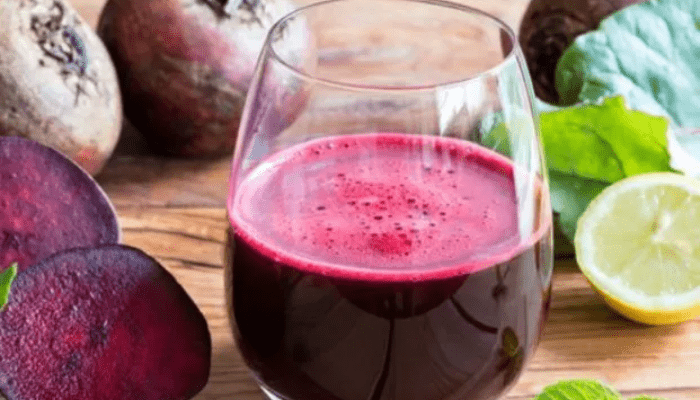Secrets for Iron Health: Hypertension Prevention Tips!
High blood pressure is a condition that affects millions of people around the world and is known as the “silent killer” due to its asymptomatic nature. It is characterized by a persistent increase in blood pressure, which can lead to serious damage to the heart, brain and other vital organs.
One of the most effective ways to prevent high blood pressure is to adopt a healthy lifestyle. This includes eating a balanced diet rich in fruits, vegetables, whole grains and foods low in saturated fat and sodium. In addition, it is important to avoid excessive alcohol consumption and reduce salt consumption.
Another important way to prevent high blood pressure is to manage stress. Chronic stress can lead to increased blood pressure, so adopting stress management strategies such as practicing relaxation techniques, meditation, and deep breathing exercises is essential.
What raises blood pressure?
Several factors can contribute to increased blood pressure. One of the main ones is an unhealthy lifestyle, which includes an unbalanced diet, rich in sodium and saturated fats, in addition to excessive alcohol consumption. A sedentary lifestyle is also a risk factor, as lack of physical activity can lead to weight gain and a weakened cardiovascular system.
Also, chronic stress plays a significant role in raising blood pressure. When we are constantly exposed to stressful situations, our body releases hormones that increase heart rate and blood vessel resistance, thus raising blood pressure.
What should you eat to lower blood pressure?
Remembering that, in addition to these foods, it is important to reduce salt consumption, opt for natural seasonings and avoid processed foods, rich in saturated fats and sodium. Consulting a doctor or nutritionist is also essential to obtain personalized and appropriate guidance for your specific case.

Here are some recommended foods to help lower blood pressure:
- Fruits and vegetables: Choose fresh fruits like bananas, apples, oranges and green leafy vegetables like spinach and kale. They are rich in potassium, a mineral that helps regulate blood pressure.
- Whole grains: Choose whole grain foods such as brown rice, whole grain bread and oatmeal. They are rich in fiber, which can help control blood pressure.
- Fish rich in omega-3s: Salmon, sardines and tuna are examples of fish rich in omega-3s, which have anti-inflammatory properties and can help lower blood pressure.
- Nuts and seeds: Almonds, cashews, flaxseeds and chia are sources of healthy fats and omega-3s, which can also help lower blood pressure.
- Low-fat dairy products: Choose skim milk, unsweetened plain yogurt, and low-fat cheeses as they are sources of calcium and protein without added saturated fat.
Who is most likely to have hypertension?
High blood pressure can affect people of all ages, but there are some factors that make you more likely to develop this condition. One of the main risk factors is age. As we age, the chances of developing hypertension increase, being more common in people over 60 years old.
Also, family history plays an important role. If you have parents or siblings with hypertension, you are more likely to develop the condition. This can be attributed both to genetic factors and lifestyle habits shared within the family, such as diet and levels of physical activity.
What is the biggest cause of high blood pressure?
The biggest cause of high blood pressure, also known as high blood pressure, is an unhealthy lifestyle. Improper eating habits, such as a diet high in salt and saturated fats, contribute to the development of the condition. Excessive consumption of salt leads to the accumulation of fluids in the body, increasing blood volume and, consequently, blood pressure.
Below is a list of the main factors that contribute to the development of this condition:
- Inadequate nutrition: A diet high in salt and saturated fats increases blood pressure. Excessive consumption of salt leads to the accumulation of fluids in the body, increasing blood volume and, consequently, blood pressure. In addition, excessive consumption of saturated fats can lead to the accumulation of plaque in the arteries, reducing the space for blood to pass and increasing pressure.
- Lack of physical activity: Inactivity weakens the cardiovascular system, resulting in lower fitness and increased resistance to blood flow, which leads to increased blood pressure.
- Excessive alcohol consumption: Alcohol abuse is associated with increased blood pressure. Alcohol can negatively affect the functioning of blood vessels, raising blood pressure.
- Smoking: The habit of smoking causes damage to the arteries, promotes the formation of plaques in the vascular walls and increases blood pressure.
- Chronic stress: Prolonged stress can lead to increased blood pressure as it triggers physical reactions in the body that can lead to an increase in heart rate and blood pressure.
- Genetic predisposition: Heredity plays a significant role in predisposing to high blood pressure. If you have a family history of high blood pressure, you are more likely to develop the condition.
Is it dangerous to sleep with high blood pressure?
Sleeping with high blood pressure can be worrying, as uncontrolled high blood pressure can cause complications during sleep. When blood pressure is high, there is an additional burden on the heart and blood vessels.
Therefore, it is essential that people with high blood pressure seek appropriate treatment and follow medical recommendations to control the condition. This may involve adopting a healthy lifestyle, taking medication prescribed by your doctor, taking regular exercise, and managing stress.

Deixe um comentário